Webinars
This popular set of Webinars came out of the GODAN Working Group on Capacity Development and began as a joint project between the CTA and the GODAN Secretariat under the umbrella of GODAN Action.
The Webinars seek to inform, inspire and teach about various aspects of opening agricultural data.
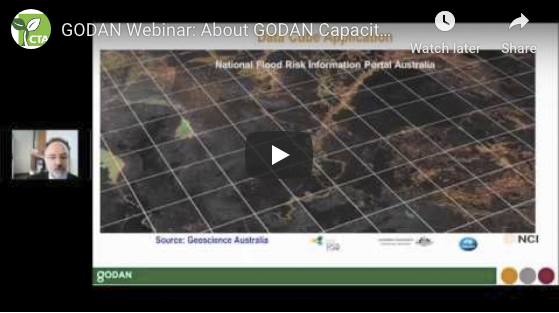
The first Webinar organised by GODAN Action and the GODAN Working Group on Capacity Development gives an overview of the activities of the Working Group and explains how to join and get involved with the group’s activities.
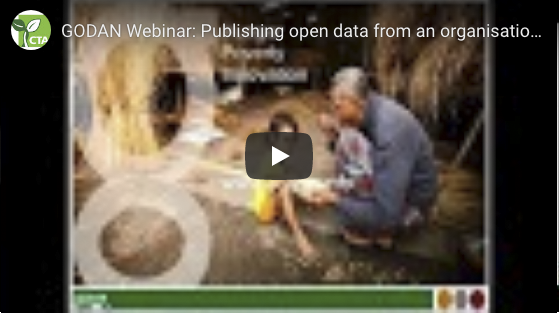
This second GODAN Capacity Building Webinar on Publishing Open Data from an Organisational Point of View was led by GODAN Action colleagues from the Open Data Institute (ODI) in London.
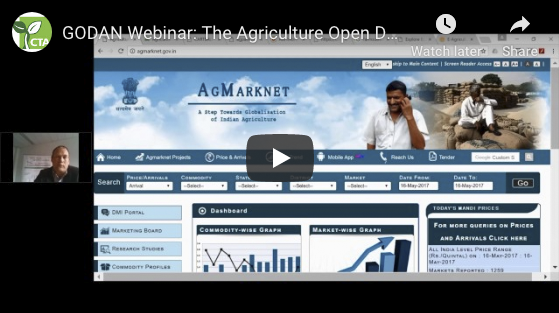
The Agriculture Open Data Package (dubbed the “AgPack”) has since been modified and updated through work undertaken by the GODAN Secretariat and the Open Data Charter to form the Open-up Guide for Agriculture, a stand-alone tool which provides comprehensive guidance on the key elements of opening datasets in agriculture.
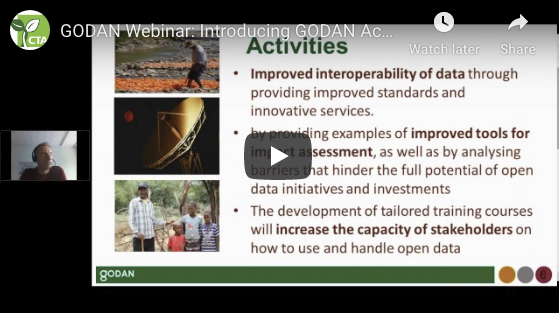
The fourth GODAN Capacity Development Working Group Webinar introduces the GODAN Action programme. GODAN Action was a programme launched by the UK’s Department of International Development (DfID).
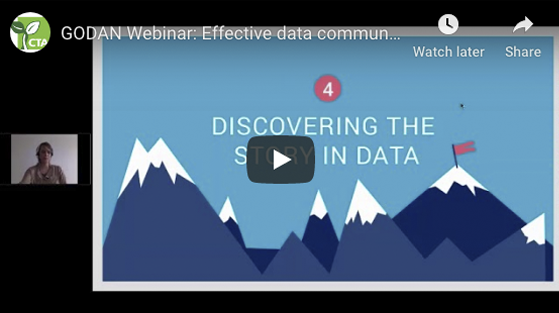
Data visualisation has been around since at least the 18th century, and recently the increase of a number of easy-to-use tools have made the creation of different types of data visualisations, including infographics, available to a larger segment of the population.
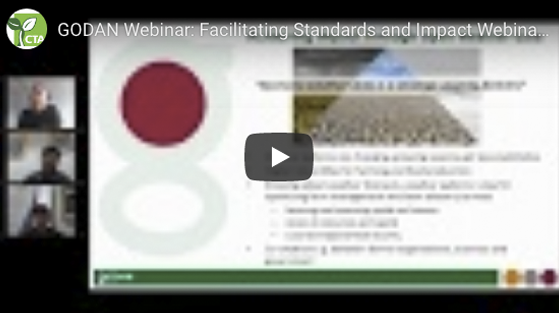
In this Webinar, GODAN Action project leads Valeria Pesce (GFAR) and Rob Lokers (Wageningen University and Research) present findings from their work on standards and impact evaluations of open data, specifically focusing on weather data.
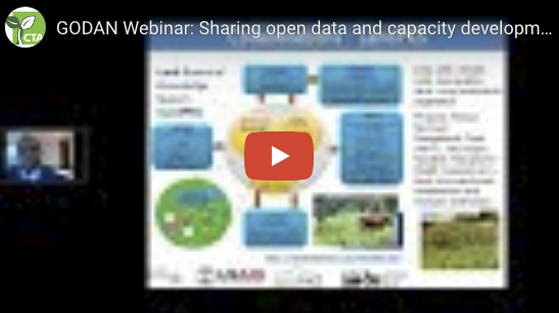
In this Webinar, Dr. Kenneth Mubea, Capacity Development Lead at the Regional Centre for Mapping of Resources for Development (RCMRD) based in Nairobi, shares some of the experiences and projects that RCMRD are involved in various open data initiatives in Agriculture.
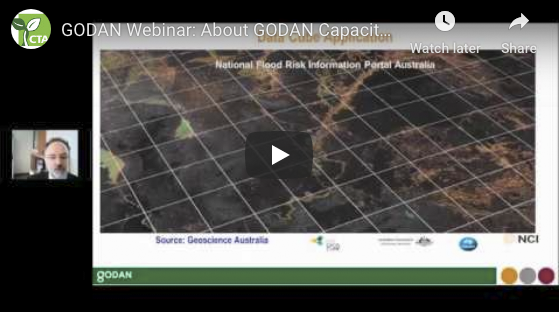
In this Webinar, Dr Adriano Camps and Dr Mercedes Vall-llossera present the AfriGEOSS - GRSS Soil Moisture and Agricultural Support Project.
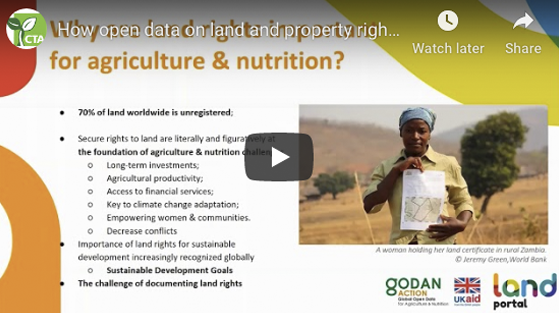
Over a billion people worldwide, predominately smallholder farmers, lack secure land rights, which are crucial for obtaining loans and providing the long-term visibility necessary for planning successful agricultural operations.
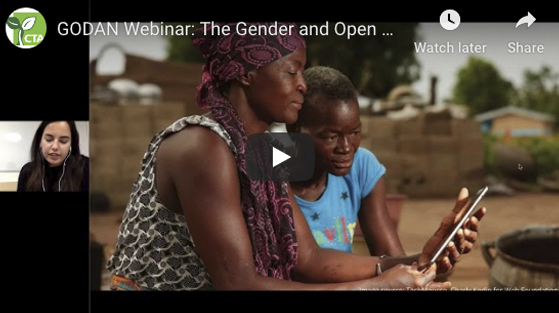
Gender and open data efforts are often siloed. Locally and nationally, there are women’s groups, digital rights groups, and gender experts, but rarely do they cross-collaborate.
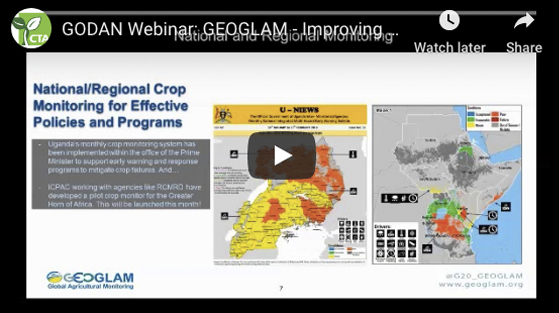
With the growing availability of satellite data and advances in high performance computing, there are new opportunities for agricultural monitoring, for example providing up-to-date information on cropland extent, crop condition and improved crop production forecasts.
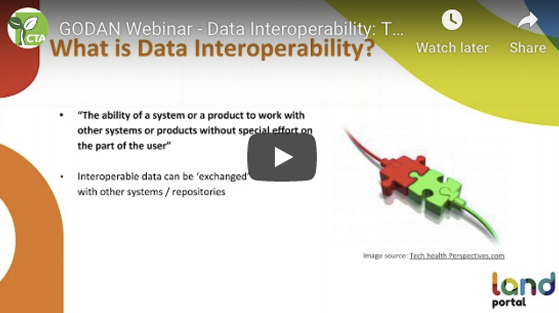
Open Data principles and standards do not only make information more easy to find and accessible on the user-end, but are also critical for machines to be able to read and understand the information.
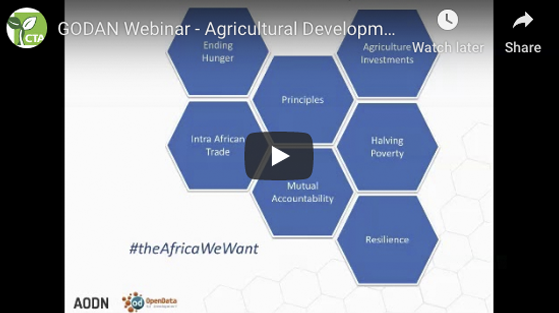
While we are very clear about the role of policy reforms, finance for development and technology transfer as part of the means of implementation for sustainable development, other critical means are sometimes not highlighted.
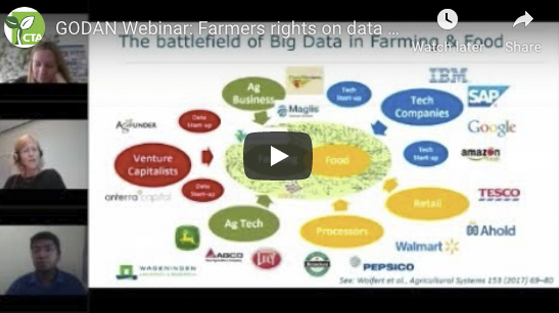
What do we mean by the farmers’ rights to data? Who owns data? Who is entitled to the value of the data? What is the role of privacy in the agricultural sector?
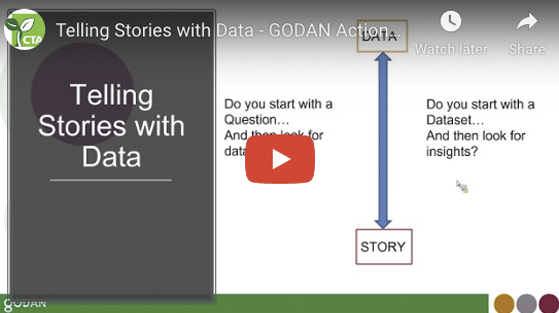
New data tools make it easier for people to access and explore open data independently and, as a result, there is a marked increase in insights being generated within organisations.
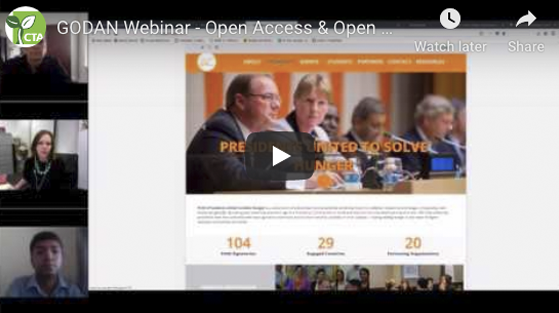
PUSH (Presidents United to Solve Hunger) is a consortium of universities from around the world that have the collective mission to end hunger and poverty.
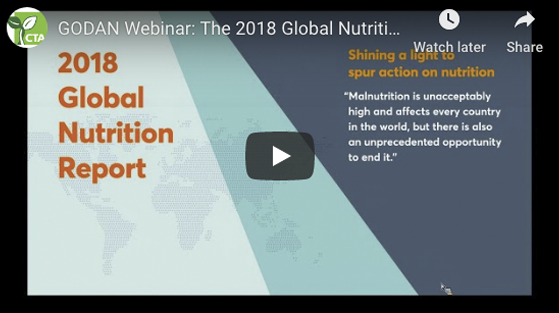
In this Webinar, Jess Fanzo - co-chair of the GNR Independent Expert Group - discusses the benefits that Open Data can have for nutrition and The Global Nutrition Report, which convenes existing processes, highlights progress in combating malnutrition, and identifies gaps and proposes ways to fill them.
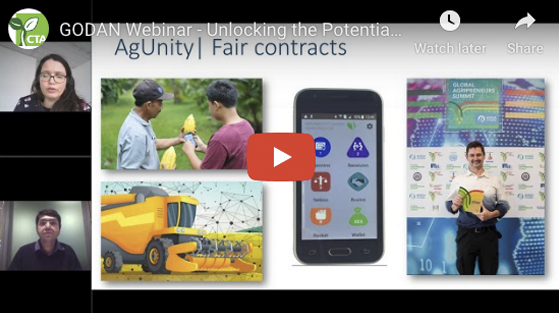
Blockchain has the potential to provide answers to a number of issues in agriculture, from farmer IDs to smart contracts, from traceability and improving certification, digital payments, insurance, consumer feedback and improved logistics.
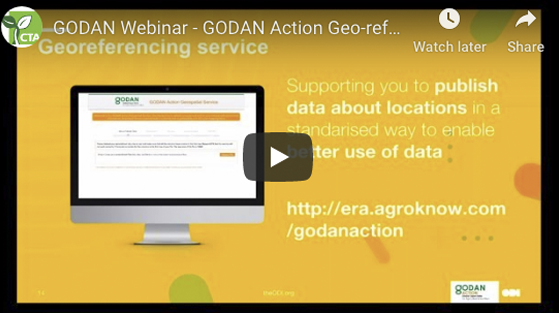
GODAN Action’s partners have been working to enhance data standards and promote best practice to improve interoperability.
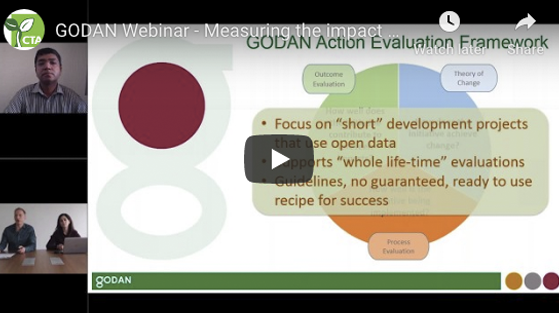
This Webinar discusses an open data evaluation framework focussing on process and outcome oriented evaluation of open data initiatives, with emphasis on earlier stage assessment, as this offers better options to monitor and steer ongoing initiatives, and design new ones.
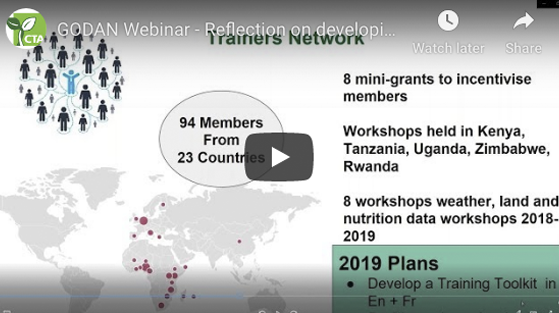
In this Webinar, Jess Fanzo - co-chair of the GNR Independent Expert Group - discusses the benefits that Open Data can have for nutrition and The Global Nutrition Report, which convenes existing processes, highlights progress in combating malnutrition, and identifies gaps and proposes ways to fill them.
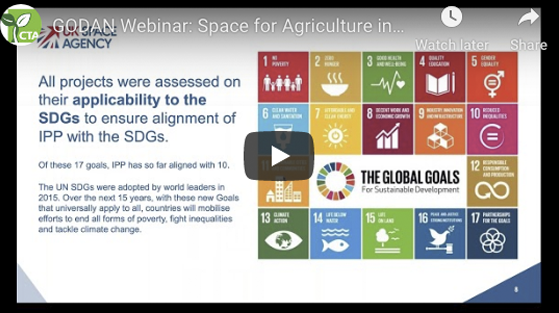
The UK Space Agency’s International Partnership Programme (IPP) is a five-year, 30 million GBP per-year programme that uses the UK space sector’s research and innovation strengths to deliver sustainable economic and societal benefit to developing countries.
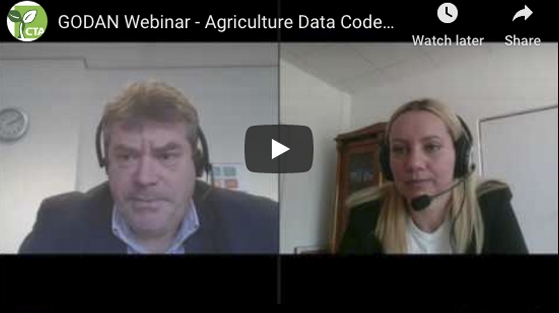
The Webinar was produced by Suchith Anand and Chipo Msengezi, in partnership with GODAN's Data Rights and Responsible Data Working Group.
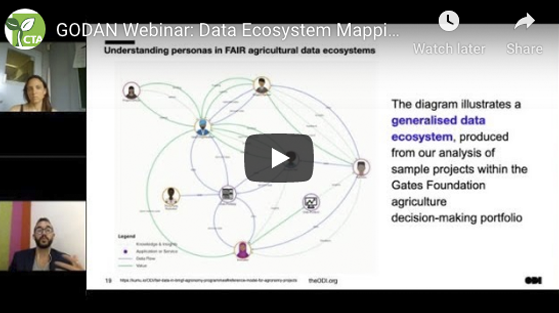
Creating a map of a data ecosystem can help us to understand and explain where and how the use of data creates value. A data ecosystem map can help to identify the key data stewards and users, the relationships between them and the different roles they play.
